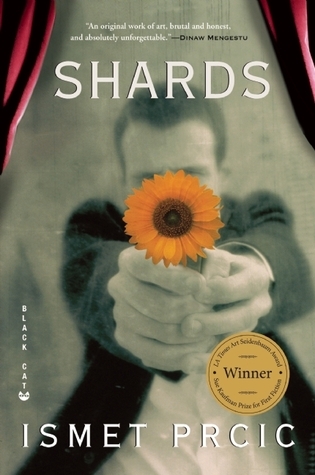What do you think?
Rate this book


392 pages, Paperback
First published October 4, 2011
"A mí nunca me obligaron a comer testículos humanos ni a otro ser humano ni a ver como se comían los cerdos a mis conciudadanos. No. En lugar de eso, hui. Eso hice. Esa es mi historia. Dejé atrás a mi madre, a mi padre, a mi hermano, a mi primer amor. Eso es todo no hay más."Nuevamente, el sentimiento de culpa por haber sobrevivido al conflicto, en este caso, el conflicto de los Balcanes.
"It was like we were driven to put that frame in front of us. To make a difference on those people’s faces, you know. Something. We let it sit in our laps, held it erect, and ceased all movement. We became a painting, staring out through the frame into the real world. And soon the real people stopped to stare at us, the painting, forgetting for a moment about the war, the oppressive psychosis that permeated everything. People have to look at art no matter what.
A bunch of children swarmed around us trying to catch a facial twitch and laughed giddily, waved their little hands in front of our eyes, and scratched their little heads when we wouldn’t think. Adults mostly stared from a distance, wondering why anybody would do this. Two elderly men with their hands behind their backs looked at us with brutal disgust, shaking their heads like the end of the world was coming and we were somehow responsible. And it would all have been an exercise in craft, a spur-of-the-moment performance-art piece, something nobody would remember for long, had it not started shelling and had we not, in our madness, remained motionless in spite of it, among the mad-dashing citizens."
"I was the first one up there in my tighty-whities, screaming giddily, staring one moment at the blue sky, the next at my white feet slapping the hard surface of the white cement, until the whiteness ended abruptly in a horizontal line and I found myself airborne above the blue, beneath the blue, in the blue and going up, up, up, I swear to God I would have been the first human to really fly had I not remembered, going up into the blue like that, that all my money was rolled up in a tobacco pouch hanging next to a pouch of another kind in my underwear."